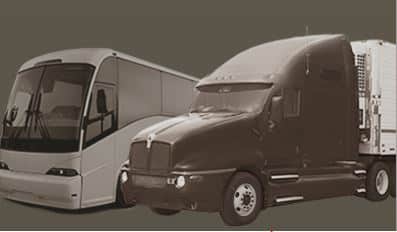On a daily basis we get calls looking to find out about getting applicants and employees tested for Department of Transportation (DOT) regulated drug testing. Of course, this testing is required as a component of the DOT operating authority. But be aware there is much more to being compliant with the DOT and FMCSA drug & alcohol testing requirements.
We are going to discuss this question first for any employers hiring drivers and second for owner operators that are individuals operating their own business as a self-employed truck driver. This discussion will be limited to employers and owner operators regulated by the Federal Motor Carrier Safety Administration (FMCSA) an agency of the DOT.
Two main topics for discussion:
Employers Hiring Drivers – DOT Drug Testing
This is often confusing for employers as there is more to the DOT compliant program then just the DOT drug test. In fact, the FMCSA requires a program that includes the following:
- Employer must implement a written policy on the misuse of alcohol and use of controlled substances.
- Employer shall provide educational materials that explain the regulations along with the employer’s policies and procedures with respect to meeting the DOT drug and alcohol testing requirements. (See What Employees Need to Know About DOT Drug and Alcohol Testing)
- Each employer shall ensure that all persons designated to supervise drivers receive at least 60 minutes of training on alcohol misuse and receive at least an additional 60 minutes of training on controlled substances use. (Online Supervisor Training Available)
- Employer must provide referral, evaluation, and treatment options for drivers with a substance abuse problem or testing positive for drugs or alcohol. For a positive test, the driver must be provided with a list of Substance Abuse Professionals (SAP).
- Pre-employment drug test is required before the driver operates the commercial motor vehicle.
- An FMCSA Clearinghouse pre-employment query must be performed before the driver operates the commercial motor vehicle.
- Drivers must be enrolled into a formal random testing program either a stand-alone random testing program or a consortium random testing program.
- Additional drug and alcohol testing is required besides pre-employment and random, these are reasonable suspicion, post-accident, return to duty and follow up.
For more details on a compliant DOT drug and alcohol testing program see – What Employers Need to Know About DOT Drug and Alcohol Testing.
Employers can access from National Drug Screening a variety of DOT drug and alcohol testing programs.
Owner Operators – DOT Drug Testing
For owner operators the requirements are slightly different. The owner operator is a self-employed driver. The DOT drug & alcohol testing program for the owner operator must include:
- Education on the rules and consequences of a violation (See What Employees Need to Know About DOT Drug and Alcohol Testing)
- Utilization of a third-party administrator (TPA) for assistance in the drug & alcohol testing, random consortium and reporting of violations to the FMCSA Clearinghouse.
- Pre-employment drug test – prior to operating the commercial motor vehicle
- Pre-employment query into the FMCSA Clearinghouse
- Enrollment into the random consortium
- Additional drug and alcohol testing as necessary – random, reasonable suspicion, post-accident, return to duty and follow up.
- If the owner operator has a positive test or a refusal to test, he/she must be removed from the safety sensitive FMCSA covered position and be referred to a Substance Abuse Professional (SAP). A return to duty process is required.
A turnkey program for owner operators to be in compliance with DOT FMCSA drug and alcohol testing regulations is available from National Drug Screening. Affordable and easy enrollment is available with the Owner Operator DOT Consortium Package.







